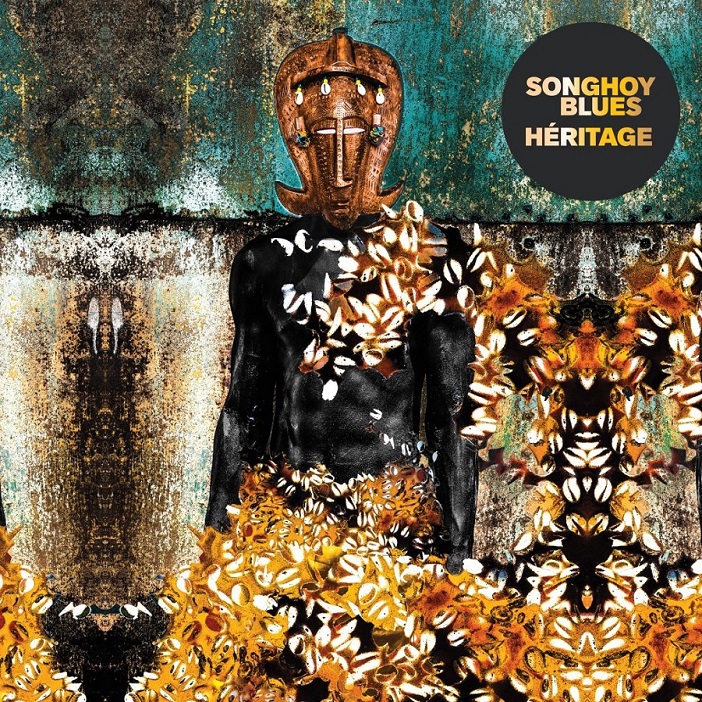Songhoy Blues – Héritage
In the vast musical landscape of Mali, where tradition and innovation often perform a delicate dance, Songhoy Blues makes a profound artistic choice with “Héritage.” After years of electrifying desert rock, the quartet has unplugged their amplifiers to directly connect with the ancient heartbeat of Malian musical tradition.
The opening track “Toukambela” immediately establishes a spiritual connection with the past through the enchanting voice of the Lontore flute, whose reed-like timbre carries centuries of stories in every raspy note. The inverted gourd forms the rhythmic foundation, its earthy percussion reflecting the measured steps of caravans that once crossed the Sahara during the heyday of the mighty Songhay Empire.
What makes “Héritage” particularly compelling is the conscious resistance to the contemporary world music market and its preference for fusion and crossover appeal. Instead, the band delivers a candid exploration of Malian musical heritage, sung in Bambara and deeply rooted in the cultural richness of a civilization that once stretched from Senegal to the Central African Republic.
Each composition feels like an archaeological excavation, carefully brushing away the sands of time to reveal the shimmering artefacts of musical tradition beneath. The traditional instrumentation – featuring kora, soku, and kamalengoni – creates a rich tapestry that transcends the often applied reductive label of “desert blues” to Malian music. This is music that breathes with the rhythm of daily life, celebrates ancient stories, and mourns forgotten losses. While their previous albums fused Malian traditions with the electric storm of rock, “Héritage” finds its strength in acoustic intimacy and ancestral wisdom.
For a band that emerged in exile, fleeing jihadist oppression in northern Mali, this return to traditional instruments and compositions carries deep meaning. It stands as a celebration of cultural resilience and a defiant affirmation of identity. In a global music landscape increasingly dominated by digital hybridization, “Héritage” emerges as a vital reminder of the power of music to preserve, protect, and pass on cultural memory. This is an essential listening experience for anyone seeking to understand the depth and refinement of Mali’s musical heritage – an album that not only honours heritage but breathes new life into it. (9/10) (Studio Mali)
![]()





